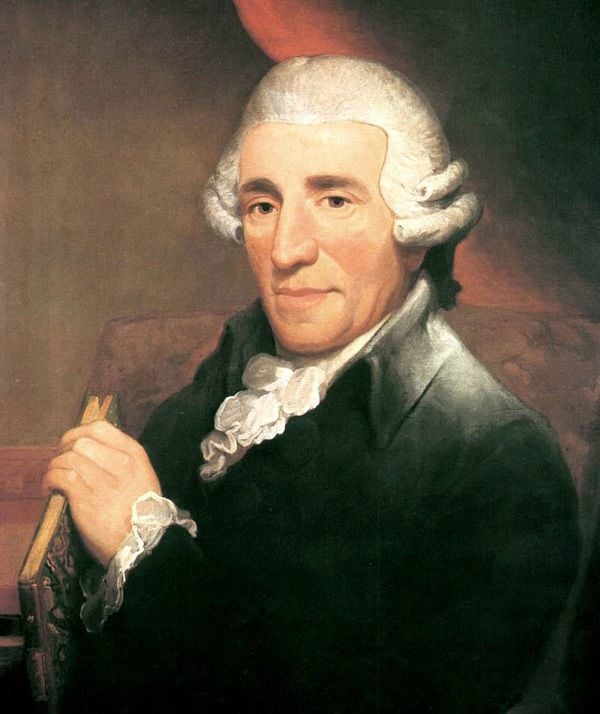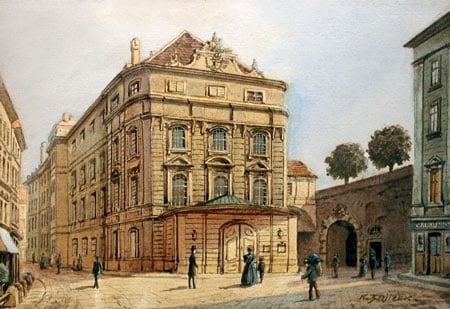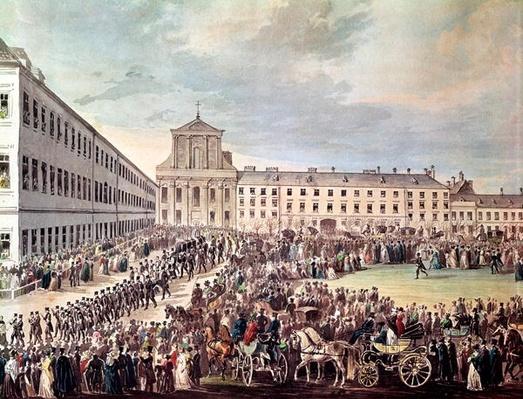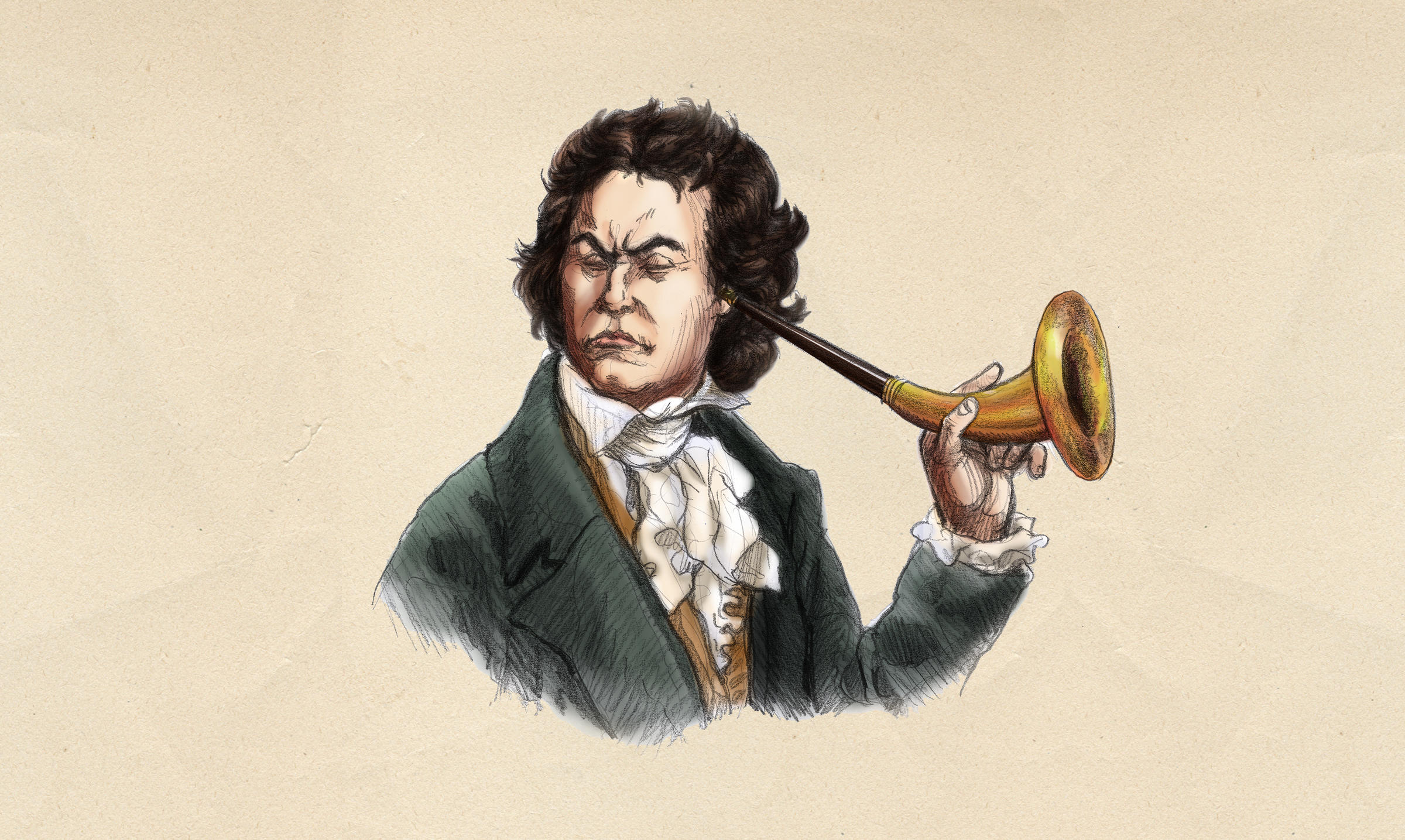Ludwig van Beethoven was born in a dark attic of a building located in the city of Bonn (Germany), supposedly on December 16th, 1770.
Music was not something alien in that home, where there was a piano, a father (Johann van Beethoven) who worked as tenor for a trusted man of Emperor Joseph II and his grandfather who had become an orchestra conductor at the court of Flanders.
 |
| Beethoven's house |
Ludwig's mother, Maria Magdalena Keverich, widow of a court footman before marrying Johann, not only had to take care of her children and her husband, but also her own mother, with alcohol problems and psychic imbalances. Only an iron will of which Ludwig was heir, prevented his mother from bowing to his destiny.
Son of an impoverished family, at the age of 4, Ludwig was forced by his father to practice piano. In those years music was an occupation that with good luck could help them to eat.
 |
| Maria Magdalena Keverich (Beethoven's mother) |
For some families, having a child prodigy was like a safe conduct to overcome misery. That is how at 8 years old, Ludwig first appeared in public as a pianist in Cologne. However, to make him more attractive, his father said he was only 6 years old. This is how Ludwig received a lot of applause at his first concert. At 9, Bonn already appreciated him as a very good organist.
In 1787, Beethoven obtained a scholarship, and with the assurance that his parents and siblings would not stop eating, he went to Vienna, the cradle of all European musicians. There, Amadeus Mozart listened to Beethoven play the piano and commented that "the young musician would give a lot to talk about."
 |
| Vienna city |
However, a few weeks after being in the Austrian capital, he received news that his mother had become ill, and at just 17 years old, Beethoven was forced to return to Bonn to accompany her in her last moments and check how her father fell into the alcohol.
He then enrolled at the University of Bonn and became an inveterate reader. He was not only dedicated to classical literacy from Homer to Shakespeare, but to the themes of his time under the gaze of Goethe and Schiller.
 |
| University of Bonn |
A special scholarship sent Beethoven back to Vienna to study with Franz Joseph Haydn. In 1796, a tour took him to Nuremberg, Prague, Dresden and Berlin where he dazzled the court of Frederick William II of Prussia, who was moved to tears when he heard his Sonatas for piano 1 and 2, opus 5.
The Viennese high society at the same time that celebrated him as a composer and pianist, they forgave his bad character and abrupt manners, which were usual theme in the meetings of the time. There was also a rumor circulating that on his return from Berlin, he had visited an ear specialist.
 |
| Franz Joseph Haydn |
After several years of deceptive medical care with hopes of improvement whose healing could take years, today it is known that Beethoven's deafness was due to an otosclerosis, a disease that consists in the development of a porous bone inside the ear, easily curable in our days. The doctors at the time believed that the problem was due to a stomach condition that the musician had contracted in Bonn.
By 1803 Beethoven's influence had already reached maturity and splendor. This is how he developed in all its fullness the forms of musical classicism and at the same time connect it with a new sensibility that was spreading throughout Europe: the romanticism.
In those silent years, his creation touched the genius. In 1824 in his Ninth Symphony, opus 25, called Coral, he reached the maximum transgression: to unite the human voice to the symphonic genre. And despite the pain and loneliness, he did it with Schiller Ode to Joy.
On December 1st, 1826, Beethoven became ill thinking it was a passing flu. But it was about dropsy so he had to undergo four operations to remove water from his belly; He suffered from liver cirrhosis.
 |
| Beethoven premiered his 9th Symphony on May 7th, 1824 in Vienna |
On March 26th, 1827, at 17:45 hrs, Beethoven quoted Cesar Augusto: "Applaud friends, the comedy is over," was his way of saying goodbye. Around 20,000 people accompanied their remains in the city of Vienna.
 |
| Ludwig van Beethoven funeral |
∗∗∗∗∗∗∗∗∗∗∗∗∗∗∗∗∗∗∗∗∗∗∗∗∗∗∗∗∗∗∗∗∗∗∗∗∗∗∗∗∗∗∗∗∗∗∗∗∗∗∗∗∗∗∗∗∗∗∗∗∗∗∗∗∗∗∗∗∗∗∗∗∗∗∗∗∗
Chilean pianist Claudio Arrau performs Ludwig van Beethoven's Concerto No. 5 for piano and orchestra (in E flat major - Op.73), in a free concert held at the Metropolitan Cathedral of Santiago de Chile.
This presentation was made in front of an audience of 5,000 people gathered inside the cathedral and another 6,000 people listening through special speakers installed outside the temple in the rain.
∗∗∗∗∗∗∗∗∗∗∗∗∗∗∗∗∗∗∗∗∗∗∗∗∗∗∗∗∗∗∗∗∗∗∗∗∗∗∗∗∗∗∗∗∗∗∗∗∗∗∗∗∗∗∗∗∗∗∗∗∗∗∗∗∗∗∗∗∗∗∗∗∗∗∗∗∗
This audiobook in Spanish narrates the life and work of this musical genius.
∗∗∗∗∗∗∗∗∗∗∗∗∗∗∗∗∗∗∗∗∗∗∗∗∗∗∗∗∗∗∗∗∗∗∗∗∗∗∗∗∗∗∗∗∗∗∗∗∗∗∗∗∗∗∗∗∗∗∗∗∗∗∗∗∗∗∗∗∗∗∗∗∗∗∗∗∗
An Ode to Joy - Beethoven 9th Symphony flashmob at Placa de Sant Roc. By Orquestra Simfonica del Valles. Sponsored by Banc de Sabadell (May 2012).


